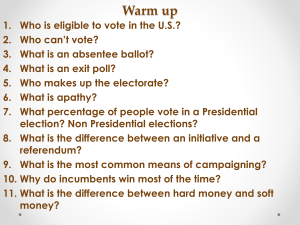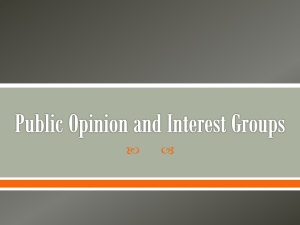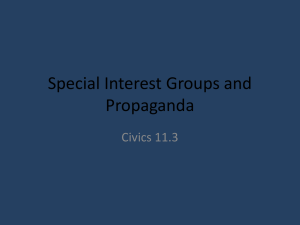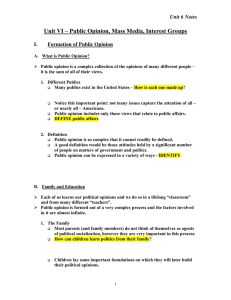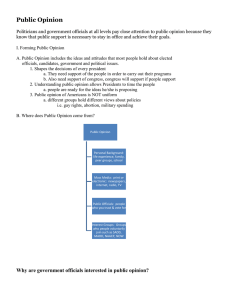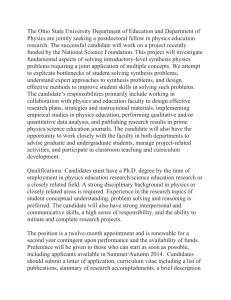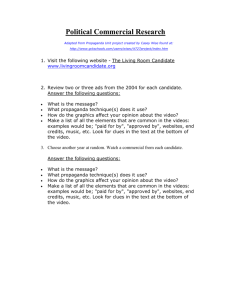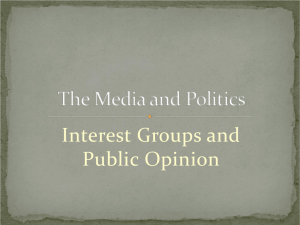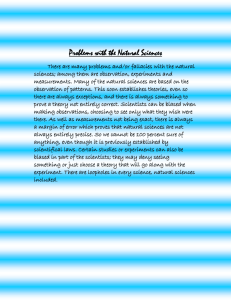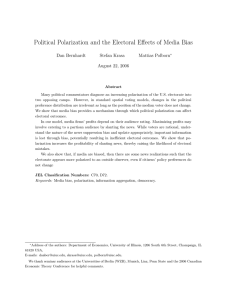Determining Public Opinion
advertisement
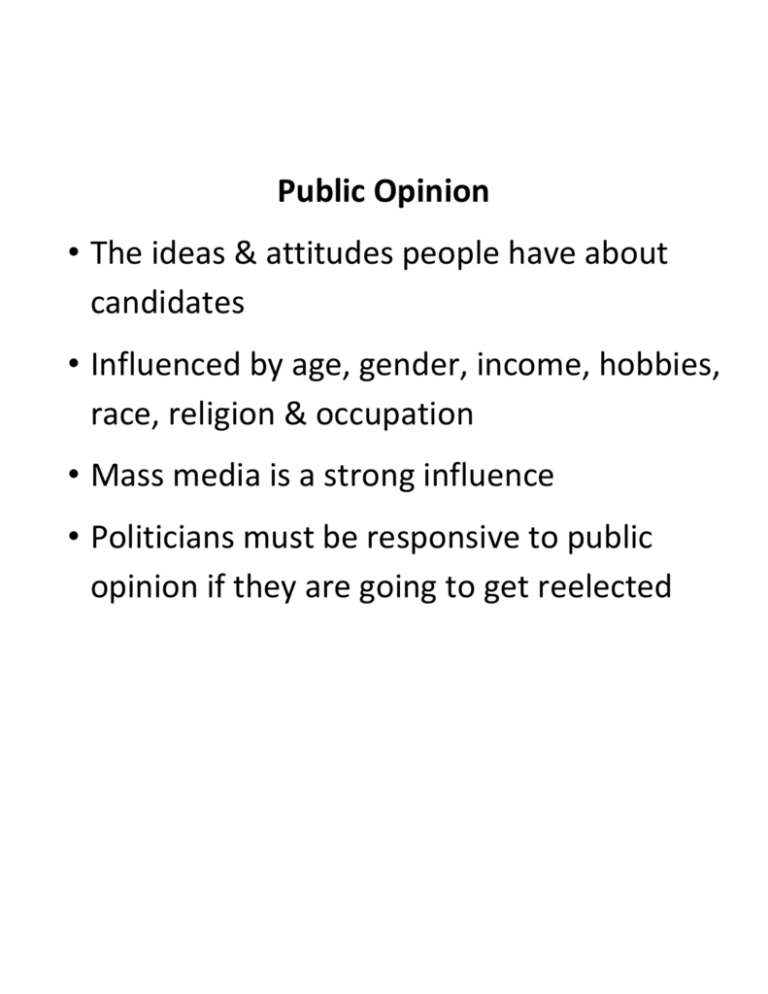
Public Opinion • The ideas & attitudes people have about candidates • Influenced by age, gender, income, hobbies, race, religion & occupation • Mass media is a strong influence • Politicians must be responsive to public opinion if they are going to get reelected Determining Public Opinion Public opinion polls– survey – most accurate way to determine public opinion Pollsters – people trained to take polls & measure public opinion Push Polls – used to push public opinion one way or another Have loaded questions – biased to get a certain response Presidential Approval Rating Gallup Poll Media • Print – newspapers, mailings, magazines • Electronic – TV, radio, internet • Main purpose – to keep us informed • Independent media is most desirable • Literacy is important • Bias – one-sided point of view Biased Media • Fox – Republican biased news • MSNBC – Democratic biased news Interest Groups • People attempting to influence government with their shared views • Pressure groups • Functions: – Bring issues to the public & lawmakers – Support candidates who favor their goals Types of Interest Groups – Economic – most common – Business organizations – interested in trade – Industrial & Trade – represent certain types of business – Labor Unions – rights of workers – Professional Associations – represent different professions • Groups – Ethnicity (NAACP) – Age (AARP) – Gender (NOW) • Public – focus on specific causes (PETA) • Can form PACs also Ways Special Interest Groups Influence Politics • Election Activities – backing a candidate • Lobbying – persuading officials • Provide expert testimony or help write laws in committees • Go to court to fight a cause • Fund elections Lobbyists • Lobby – try to get officials to support a group’s goals • Responsible for getting PAC money to the right politicians • Speak in congressional committees Regulation • Lobbyists can’t pay a candidates living expenses • Federal Regulation of Lobbying Act (1946) – All lobbies must register with federal & state governments & report all expenditures Propaganda • Attempt to influence people with biased information • Always get both sides of a story from reliable sources • Good way to determine what a candidate really supports is to see which PAC gives them money for campaigning Types of Propaganda • Endorsements – famous or admirable person supports a candidate • Stacked Cards – presenting only 1 side of the issue – distorting the facts • Name-Calling – turning people against an opponent by giving them an unpleasant label or description • Glittering Generality – statement that sounds good but is meaningless • Symbols – use and misuse of symbols • Just Plain Folks – make people think that the candidate is just like them • Bandwagon – convincing people that everyone else agrees with a certain candidate
